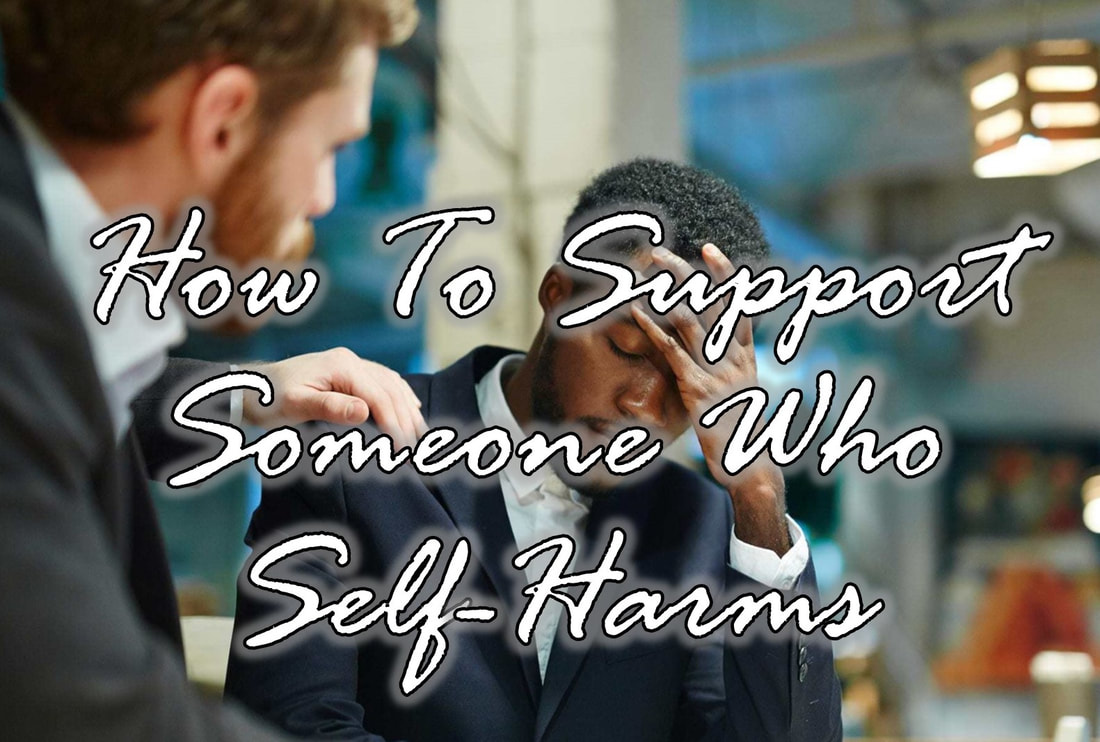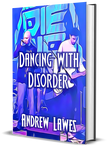|
It's so difficult when you realise someone you care about self-harms. Here is some advice on how best to support them. Discovering someone you love hurts themselves is a difficult experience. The deliberate infliction of pain upon oneself is something that is difficult to understand, but empathising with the personal reasons behind an individual’s behaviour is unnecessary when it comes to supporting them. As someone who has self-harmed, and who has also supported and loved individuals who engage in self-harm, I would like to offer some advice based on my experience. ◊◊◊ Avoid judging or shaming “Do you know what you’re putting your mother/father/friends through?” “Don’t you realise how awful it looks?” “What will people think?” The main reason I began self-harming was because I couldn’t handle my emotions. I was overwhelmed with feelings of guilt and shame and self-harm gave me a brief respite from the torment I inflicted upon myself mentally. The inability to handle these emotions is what led me to hurt myself, and whenever I was shamed or judged for my actions my reaction was to hurt myself more. From my conversations with others, this is a common after-effect of phrases such as the above. Stop using them – they help nobody, least of all the person who needs support. Listen to the person This is the key to helping anybody, in any situation. When discussing my mental issues, I often felt the person talking to me was uninterested in supporting me; they just wanted me to stop self-harming. I understood the reasoning, but it didn’t help me – I wanted someone to let me talk about my emotions, not to tell me how they felt, and it was rare I found someone who didn’t need to try to fix me after I spoke. Think about when you converse with people. How often do you truly listen to what they say? Do you take in what they are telling you, or are you just waiting for your turn to talk? Active listening takes effort, it requires patience and that is a skill that takes time to master. Think of your body language; have you adopted a closed-off posture, such as crossed-arms? Are you making eye contact, reacting to what you are being told? Chances are that your body language is giving off signs that you are uninterested in what your conversant is saying, so try to be aware of how you may be presenting yourself. I was used to dealing with my problems myself. If I sensed people weren’t focused when I was trying to talk, I shut down and told the person whatever they wanted to hear. My mental health was the most dominant and important thing in my life and it hurt me when people appeared not to appreciate that. I imagine others feel the same, so if they try to open up to you, please remember how important it is to them and make the effort to listen properly. Let the person breathe “If I find out you’ve done this again, I’m ringing the psychiatrist/hospital.” A common reaction to the discovery of self-harm is to hide razors, knives and other implements that can be used to cause harm. This is an understandable reaction, but it is both pointless and counter-productive. If somebody wishes to harm themselves, they will find a way to do so. By hiding items that are commonly used, all you are doing is showing the individual who self-harms that you do not trust them, and it is very patronising. Similarly, not doing activities or talking about certain subjects because you feel the person who self-harms “can’t handle it”, whilst understandable, is not helpful. My biggest fear is of being locked away in an asylum. When my self-harm was discovered, the immediate reaction of those closest to me was to say they would take me to the doctors. It seems the logical thing to do, but it was the worst thing I could have heard. It came over as a threat, and that led to me feeling more anxious and less in control of my life, which in turn exacerbated the self-harm. Many people are scared of being institutionalised; please avoid adding to their stresses at a time when they need support. The individual is in control of their self-harm. What they need support with is rebuilding their self-worth and their confidence. What they need most is patience and support while they learn how to understand their emotions and how to take control of their life. Learn basic first-aid Finding someone you care about in the moments following an act of self-harm can lead to a maelstrom of emotions, primarily confusion, distress, panic and worry. What you need to do is detach emotion from the situation, maintain a calm head and, if necessary, focus on treating the wound. Knowledge of basic first aid is essential, especially if it is a bad injury. If it is a cut, apply pressure to the wound and, if possible, keep it above the level of the heart. If it is a burn, run it under cold water for between 10 and 30 minutes. If it is a moderate to severe burn, cover it with Clingfilm – this will help prevent infection. Get it looked at by a professional. Whatever you do, don’t overreact to the situation. If there is excessive blood-loss, call an ambulance – while it seems to contradict what I advised earlier, sometimes accidents happen and arteries can be cut, and keeping the person alive has to be the priority – but in most cases of self-harm it isn’t needed. Learn how to keep cuts and wounds clean to avoid infection. Basic things, but helpful to know. An introduction to first aid can be found HERE. Focus on the root cause This may be the hardest point to get your head around, but you need to: Self-harm is not the problem. Self-harm is a reaction to other issues in someone’s life. Those are what we need support with. Comprehending this allows you to support your loved one much more effectively. This is where the ability to listen is crucial. The underlying issues could be anything: sexual abuse, bullying, financial worries, stress of exams or work, maybe even just low self-worth. Whatever it is, listen to your loved one and support them. If your child is being bullied or is struggling at school, find out why and support them as they wish to be supported. If it is low self-esteem, focus on helping them to see their worth as an individual. If it is some form of abuse, then, whatever you do, BELIEVE them. Too often people are made to feel like liars when they try to talk, and it can lead to long-term psychological damage. You have to believe them. Ask the individual what support they want, if any. Ask what you can do to help. It is good to offer suggestions, but only do so if requested, and avoid demanding they do something they don’t want to do. Seeing a therapist is only beneficial when it is the individual’s choice to do so. Make your loved one aware of the options they have, and refrain from making demands. ◊◊◊ The key to everything is support. I can’t promise you that this will be an easy process. Even with the greatest support in the world, it can take a long time for somebody to stop self-harming. Self-harm is the sister of addiction, and much as the alcoholic knows where the nearest drink is, a self-harmer always knows ways to hurt themselves.
It has been years since I last cut, but even now, when I get stressed, when I feel upset, I know that self-harm can provide a solution. However destructive it may be, that appeal will always be in the back of my mind. I went six years without self-harming, yet in 2010 when I suffered I breakdown, I turned to the blade. I will never be an ex-self-harmer, but today I’m someone who hasn’t self-harmed in a few years, and I’m someone who is excited about the future. I never thought I’d feel this way, but the support I received made it possible. Everyone deserves to feel optimistic about life. It took me almost 30 years to feel this way. I hope my reflections upon my experience can play a small part in others feeling like this too. Comments are closed.
|
"One of the most insightful works I've read on mental health problems in men ... very well-written and a real page-turner. I would recommend it to anyone.
⭐️⭐️⭐️⭐️⭐️" Dancing With Disorder
Hardcover: £19.99 Paperback: £12.99 Kindle: £2.99 "It communicates a deep understanding of troubled individuals who suffer from the challenges of mental disorders ... Courageous, wise, humorous and thought-provoking ... an easy-to-read, surprising and subtly moving chronicle.
⭐️⭐️⭐️⭐️⭐️" Follow Andrew Lawes on Social MediaDisorderly
|





